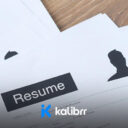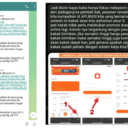How to Answer Interview Questions Like a Pro (with Samples)
The job interview is often the most nerve-wracking part of the job search process. It’s your chance to make a lasting impression on potential employers, and how you answer their questions can make or break your chances of landing the job. But with the right preparation and mindset, you can tackle any interview question like a pro. Here’s how to approach common interview questions and deliver answers that will leave a positive impact.
TOPICS
1. Understand the Interviewer’s Perspective
Before diving into specific questions, it’s crucial to understand what the interviewer is looking for. They’re not just interested in your qualifications—they’re assessing your problem-solving skills, cultural fit, and how you handle pressure. By keeping this in mind, you can tailor your answers to align with their expectations.
Sample Insight:
For example, if you’re applying for a position at a company known for its collaborative culture, highlight your ability to work in teams and support colleagues.
Tips:
- Research the company’s values and culture before the interview.
- Think about how your experiences align with the company’s goals.
- Be prepared to discuss how you can contribute to the company’s success.
2. Master the Art of the STAR Method
The STAR method (Situation, Task, Action, Result) is a proven technique for answering behavioral interview questions. This approach allows you to provide structured and concise answers, showcasing your problem-solving abilities and accomplishments.
Sample Answer (Using STAR for a leadership question):
“In my previous role as a project manager (Situation), I was tasked with leading a cross-functional team to develop a new product line (Task). I coordinated weekly meetings, set clear goals, and encouraged collaboration (Action), which resulted in launching the product two weeks ahead of schedule and exceeding our initial sales targets by 15% (Result).”
Tips:
- Situation: Describe a specific event or challenge you faced.
- Task: Explain your responsibilities or the goals you had to achieve.
- Action: Detail the steps you took to address the situation.
- Result: Share the outcomes of your actions, highlighting any successes.
3. Common Interview Questions and How to Tackle Them
Let’s break down some of the most common interview questions and how you can answer them effectively:
“Tell me about yourself.”
This open-ended question is often used to start the interview. It’s your opportunity to set the tone and highlight your most relevant experiences.
How to Answer:
Focus on your professional background and how it relates to the job you’re applying for. Mention key achievements and skills that make you a strong candidate. Keep it brief, ideally around 2-3 minutes.
Sample Answer:
“I’ve been working in the marketing industry for the past 6 years, specializing in digital marketing and SEO. In my last role at XYZ, I managed multiple campaigns that led to a 20% increase in organic traffic and helped boost conversion rates by 10%. I’m excited about this opportunity because I’m passionate about working with data-driven strategies, and I see a strong alignment between my skills and your company’s focus on innovation.”
“Why do you want to work here?”
This question tests your knowledge of the company and your enthusiasm for the role.
How to Answer:
Highlight specific aspects of the company that appeal to you, such as its mission, culture, or industry reputation. Explain how your skills and career goals align with the company’s objectives. Avoid generic answers—be specific and genuine.
Sample Answer:
“I admire your company’s commitment to sustainability and its reputation for creating high-quality, eco-friendly products. My background in product development, particularly in sustainable materials, aligns perfectly with your goals. I’m excited about the opportunity to contribute to your mission and to grow in an environment that prioritizes innovation and environmental responsibility.”
“What are your strengths and weaknesses?”
Employers want to see self-awareness and honesty in your response.
How to Answer:
For strengths, choose qualities that are directly relevant to the job and provide examples of how you’ve demonstrated them. For weaknesses, pick a real but minor area for improvement and explain how you’re working to overcome it. Avoid cliché answers like “I’m a perfectionist.”
Sample Answer (Strengths):
“One of my strengths is my ability to stay organized and manage multiple projects efficiently. In my previous role, I led three concurrent projects, all of which were completed on time and exceeded client expectations.”
Sample Answer (Weaknesses):
“One area I’m working on is improving my public speaking skills. While I’m confident in small meetings, I’ve taken steps to be more comfortable presenting to larger audiences by attending workshops and volunteering to lead team meetings.”
“Describe a challenging situation and how you handled it.”
This question assesses your problem-solving skills and resilience.
How to Answer:
Use the STAR method to structure your response. Focus on a situation that had a positive outcome, showcasing your ability to navigate challenges effectively. Emphasize what you learned from the experience.
Sample Answer:
“At my last job, we were facing a tight deadline to deliver a major client project, and halfway through, one of the key team members had to take emergency leave. I stepped up to take over their tasks (Situation), reorganized the workload (Task), and worked closely with the client to ensure transparency on deliverables (Action). As a result, we successfully delivered the project on time, and the client was impressed with our adaptability (Result).”
“Where do you see yourself in five years?”
This question gauges your long-term commitment and career aspirations.
How to Answer:
Align your answer with the potential career path within the company. Show ambition but remain realistic—avoid overreaching. Mention your desire to grow and contribute to the company’s success.
Sample Answer:
“In five years, I see myself taking on more responsibility, possibly in a leadership role within the marketing team, helping to shape the strategy and growth of the company. I’m eager to develop my skills further, especially in areas like digital transformation, and I’m excited about the opportunities for growth that your company offers.”
4. Prepare Questions for the Interviewer
Remember, an interview is a two-way street. Asking thoughtful questions not only shows your interest in the role but also helps you determine if the company is the right fit for you.
Sample Questions:
- “Can you tell me more about the team I’ll be working with?”
- “What does success look like in this role?”
- “How do you support professional development and growth within the company?”
- Practice, Practice, Practice
The more you practice, the more confident you’ll feel during the interview. Conduct mock interviews with a friend, family member, or even in front of a mirror. This will help you refine your answers, manage your nerves, and improve your delivery.
Sample Practice Exercise:
Record yourself answering a common interview question, then review your tone, body language, and pacing. This can help you identify areas for improvement, like reducing filler words or improving eye contact.
6. Stay Calm and Positive
Interviews can be stressful, but staying calm and positive is essential. Take deep breaths, maintain good posture, and remember that the interview is as much about you assessing the company as it is about them assessing you.
Sample Mindset Tip:
Before the interview, remind yourself that it’s okay not to have a perfect answer for every question. The goal is to show your problem-solving abilities, enthusiasm, and willingness to learn.
Answering interview questions like a pro requires preparation, self-awareness, and confidence. By understanding the interviewer’s perspective, mastering techniques like the STAR method, and practicing your responses, you can approach any interview with poise and professionalism.
Kalibrr offers resources and opportunities to help you prepare for interviews and find roles that match your skills and aspirations.
Remember, every interview is a learning experience. With each one, you’ll become more comfortable and adept at showcasing your qualifications, ultimately leading you to that coveted job offer.
Ready to step into the professional world? Apply now at kalibrr.com.





Belum ada komentar yang tersedia!